
The Business of Fashion
Agenda-setting intelligence, analysis and advice for the global fashion community.

Agenda-setting intelligence, analysis and advice for the global fashion community.
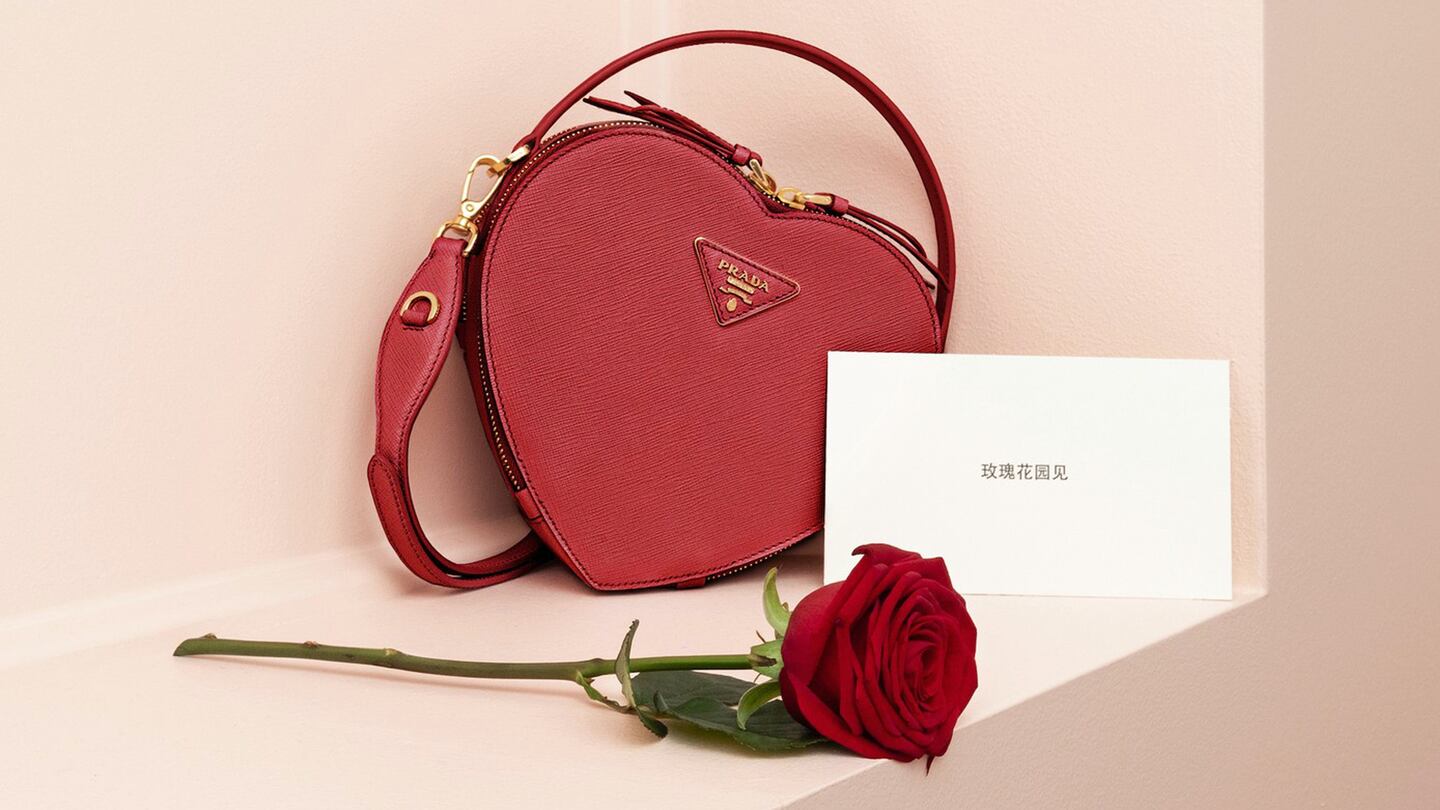
SHANGHAI, China — It's Qixi time again, which means the WeChat Moments and Weibo newsfeeds of people all around China will be filled with posts from women showing off the gifts their husbands and boyfriends have given them for the local equivalent of Valentine's Day.
Sometimes that item will be a hotly-anticipated, limited edition bag released expressly for this purpose. This year luxury collaboration machine Tao Liang, better known as Mr Bags, chose Chloé to be his Qixi limited edition partner with his take on the Aby bag, priced at 13,800 yuan (around $2,700) for each of the 199 available bags selling out weeks in advance of the actual holiday, which this year falls on August 7.
Prada also went big on bags, with limited editions of its Odette and Cahier styles available through an immersive WeChat mini-program in which users can stroll through an illustrated virtual garden.
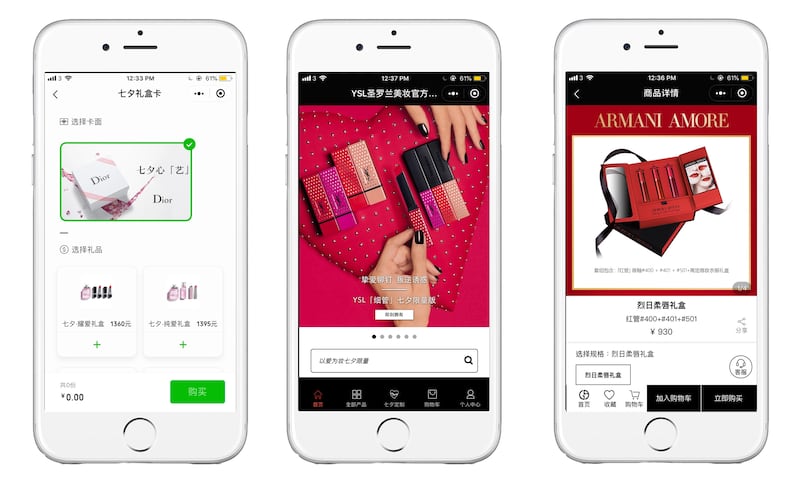
Dior, YSL and Giorgio Armani's WeChat mini programs selling limited edition Qixi lipsticks | Collage by BoF
ADVERTISEMENT
Lipsticks are always a popular Qixi gift, with a cursory search on Alibaba's Taobao platform showing Giorgio Armani, Tom Ford, YSL and Dior all rank in the top five when searching for "Qixi lipstick gift" — all in shades of auspicious red for the occasion.
All of the Valentine’s Days
Qixi Festival has become one in a parade of Valentine’s-like events in China, alongside Western Valentine’s Day in February and 520, which falls on on May 20.
It seems no coincidence that a growth of sharing on social media, and an increased desire for Chinese people generally to “show-off” their luxury lifestyles, or in this case, luxury-infused love, has coincided with a growth in the number of such festivals.
Valentine's Day first hit Mainland China in the 1990's, as the country's economy boomed and a fascination with all things Western was at its peak. Meanwhile, 520 — the numbers read in Chinese sound like "wo ai ni" ('I love you', in Mandarin) — has only been celebrated in a wide-spread way over the last few years.
At the other end of the spectrum, Qixi Festival is known as a traditional Chinese holiday, and has been celebrated in some form or another since the Han Dynasty more than 2,000 years ago.
In China, love has become increasingly complicated, intertwined with consumerism.
The way it is celebrated today, however, is a far cry from the original story of ever-lasting love between a cowherd and a weaver girl, or even how it was initially celebrated, with young women making offerings to the weaver girl in the legend, asking for skills, knowledge and a good husband in return.
As China’s society has become rapidly and intensely commercialised, romantic relationships too can be seen “like a commodity, traded and exchanged in the market,” claims Pan Wang, senior lecturer in Chinese and Asian studies at the University of New South Wales and author of “Love and Marriage in Globalising China.”
ADVERTISEMENT
“[In China] love has become increasingly complicated, intertwined with consumerism, [and] in this sense you can say love is tagged with a price like other products in the market. To some people, the value of love can be measured by the price of gifts,” Wang explained.
While this can be said of some social demographics in countries across the world, there are some unique drivers to consider in China.
I Do … Not
Chinese society is changing, with marriage rates falling to a five-year low in 2018 (only 7.2 people out of every 1,000 got married in China last year, the lowest marriage rate since 2013, according to the National Bureau of Statistics and the Ministry of Civil Affairs). Meanwhile, the divorce rate has climbed every year for the past decade and a half.
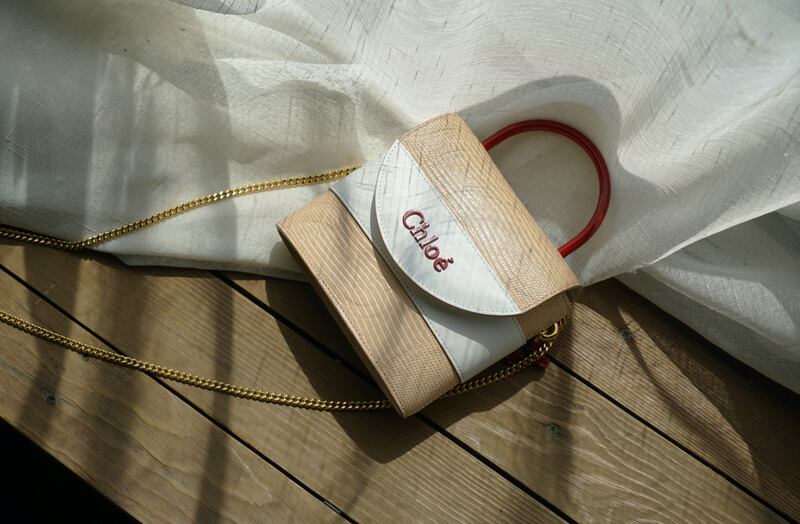
Chloé and Mr. Bags' limited edition Aby Lock Bag | Source: Courtesy
As these traditional markers of commitment falter, or increasingly lose value in society, especially in China’s most developed cities (Shanghai and Beijing, unsurprisingly, have the lowest marriage rates in the country), men and women are increasingly looking at expensive gifts as a way of signifying the seriousness of a relationship.
“While people tend to get married later, they exchange gifts of love more often and longer,” says Tim Schlick, chief strategy officer at Platinum Guild International (PGI).
According to data from PGI’s 2018 China Platinum Acquisition Study, precious metal jewellery love gifting from boyfriends is becoming more popular among millennials in higher-tiered cities. One quarter of tier one millennial women received precious metals jewellery from a boyfriend last year, up from 20 percent in 2016.
ADVERTISEMENT
“When my mother was getting married in the 1970’s,” Shanghainese teacher Zengdong Yang, 35, explains, “A man might buy them a bicycle or a sewing machine, which was then a major expense, to show that he wanted to get married. This is the same kind of idea, it’s just that the kind of presents have changed.”
Quite famously, men in China (and their parents) are under pressure to own both a home and car before a woman’s family will accept any potential marriage. But according to Pablo Mauron, partner and managing director China at Digital Luxury Group, even in cases where marriage is not immediately on the table, these signifiers of economic dependability and desirability are just as important.
While people tend to get married later, they exchange gifts of love more often and longer.
“It’s important to show some sort of financial commitment to [legitimise] a relationship and show that you are serious about it,” Mauron said.
“The romantic gifting culture, no matter whether it’s Valentine’s Day, Qixi or 520 is directly on that trend, ‘You’re going to have to show that you’re not afraid of spending money on me to show that you value and take our relationship seriously’.”
WeChat Wishlists
The growth of social media and digital commerce has only intensified this phenomenon. Just about every luxury brand bases their Qixi campaigns around WeChat, with an interactive marketing campaign (perhaps including some kind of clever gamification) accompanying a mini-program selling Qixi-themed limited editions.
But WeChat also facilitates women suggesting purchases from boyfriends or husbands by sending them a link to their desired gift, which can then directly be purchased by the giver within the WeChat eco-system, or financed with a digital "hongbao" (red envelope.)
In three clicks you get to show that you are serious about your relationship.
"It just makes the act of gifting so much easier," Mauron said. "[Pretty] much in three clicks you get to show that you are serious about your relationship."
Prior to WeChat, hongbao were traditionally given only on certain occasions, such as weddings and at Chinese New Year, but the ease of giving digital money within WeChat has meant that hongbao are now a common gift for all occasions.
Because of traditional hongbao gifting, there isn't the same resistance in China to giving the gift of cash as there is in the West, where it seems like a slightly unfeeling, certainly unromantic choice, and hongbao giving explodes on Qixi.
Most popular are hongbao involving the numbers 1314520, which, when read in full in Chinese sounds like, "yi sheng yi shi wo ai ni" (I love you forever.)
To Thine Own Self
As women postpone marriage to build careers and become economically independent, some brands are banking on self-gifting to be a rising trend around holidays. Why, if a single woman wants a luxury lipstick or handbag on Qixi, wouldn’t she buy it for herself?
This is a question that has occurred to Burberry, which for its Qixi campaign featured four videos exploring non-romantic versions of love, including the "significant self" as opposed to "significant other."
Though Mauron says Digital Luxury Group has also seen self-reward as an important recent trend among Chinese luxury consumers, he is not convinced that this trend “will apply to these romantic-themed celebrations” as the practice is more closely associated with personal milestones.
It seems in an age in which traditional markers of love and commitment are on the way out, there is still a great appetite for romance — a pragmatic and consumerist appetite, certainly — but a love for love nonetheless.
时尚与美容
FASHION & BEAUTY

Youtopia by Labelhood | Source: Courtesy
Labelhood Launches China’s First Fashion Incubator and Youth Fashion Festival
After being inspired by a group of high-school students in Shanghai who were creating their own fashion shows and forums, Chinese multi-brand retailer and designer showcase Labelhood (where BoF China Editorial Director Queennie Yang also serves as chief education advisor) decided to launch the country's first fashion incubator, open to applicants from high school, as well as an advanced stream for fashion school graduates. The results of the first iteration of the program – in which young designers were mentored for three months by BoF 500 members Angel Chen and Xu Zhi Chen, as well as Yirantian's Yirantian Guo, and Pronounce co-founder Yushan Li – will be on display at the Labelhood Youtopia Youth Fashion and Arts Festival, on August 10th and 11th in Shanghai. (BoF China)
The Award for Best Brand Ambassador in China Goes to…
A report from China's Ai Man data agency, measuring the return on investment of luxury brands' collaborations with celebrity ambassadors in China has shown Chopard's partnership with Zhu Yilong, Sergio Rossi's tie-up with Guli Naza, and Versace's collaboration with Yang Mi resulted in the best commercial results for those brands. Prada's partnership with Cai Xukun and Cartier's with Song Qian were also highly rated in terms of their ROI and the stars of reality talent shows, "Idol Producer" and "Produce 101" were breakout newcomers. Yang Mi's move from repping one Capri Holdings-owned brand (Michael Kors) with great success, to another in Versace proves her appeal as a brand ambassador remains undiminished. (Jiemian)
Domestic Brands Now Account for Majority of China's Beauty Favourites
Six of the top ten brands chosen by respondents in "The 2019 National Beauty Report" released by Tencent Holdings and Kantar Group were Chinese, with Pechoin taking the top spot. Additionally, the report found that 42 percent of respondents were more likely to choose a local beauty brand over a domestic competitor and almost 90 percent said they were likely to repurchase products from a local brand. Interestingly, price wasn't the major consideration for going local, with only 26 percent of respondents citing it as a key reason for choosing local brands. More important than a brand's country of origin were effectiveness and reviews. (Cosmetic Design Asia)
科技与创新
TECH & INNOVATION
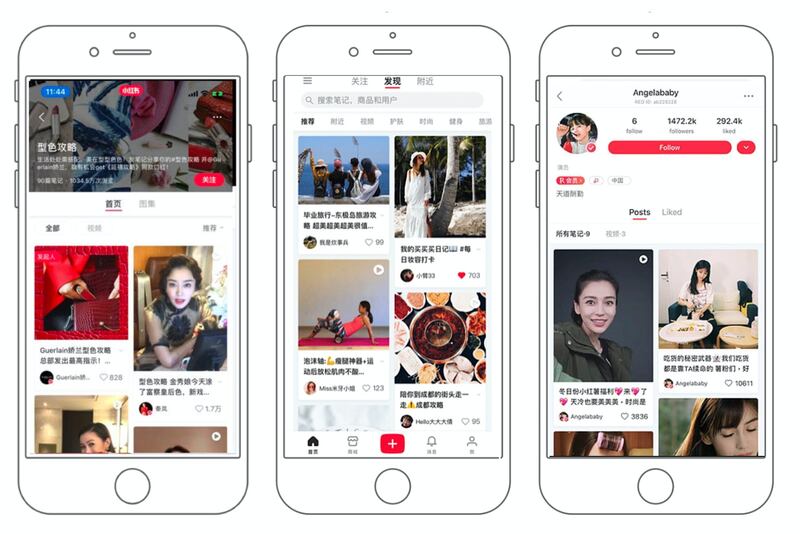
Xiaohongshu's user interface | Collage by BoF
Xiaohongshu Disappears from China’s Android App Stores
Seemingly without warning, the wildly popular Xiaohongshu social commerce platform vanished from Chinese Android app stores. In hindsight, perhaps the warning was its addition several weeks ago to an official government ministry list of companies collecting too much personal data. Or perhaps its disappearance is related to official criticism of fake reviews and false information on the platform, which caused it to cull the majority of KOLs who produce the content so loved by Xiaohongshu users. According to its Shanghai-based parent company, Xinyin Information Technology, the Alibaba-backed Xiaohongshu is communicating with relevant authorities to find a solution. Regardless, it seems the platform, which has built a user-base of more than 200 million since its launch in 2013, is fighting fires on several fronts. (Yicai Global)
China’s Tightening Cyber Laws Cause Concern for US Businesses
A tightening of cybersecurity rules and standards being floated by China has US businesses worried about additional barriers to the Chinese market, a concern that could complicate US-China trade talks (the latest round of which are currently underway in Shanghai). If passed, the new regulations would forbid certain data leaving China, tough rules for procuring equipment could also place foreign products at a disadvantage. Most affected would be major US tech companies, such as Cisco, IBM, Juniper and Dell. Providers of financial services and the automotive sector also could be impacted. We have not reached the pit of China-US business relations yet. (WSJ)
How China's Different Generations Use Social Media, Revealed
Kantar's 2019 "China Social Media Landscape" white paper, utilising data from CIC Intelligence, outlines the differing social media uses of Chinese generations. Whereas Gen-X have clear goals when using social media — meaning they favour information gathering platforms like Toutiao or communicating on WeChat — Gen-Y is more multi-faceted, using WeChat and Weibo, shopping on Taobao and consuming media on streaming services iQiyi and Youku. Gen-Z cares most about personal privacy and customised services, and still shop on Taobao and browse Weibo, but are also more likely to use Xiaohongshu, Douyin or Bilibili. In order to cover their bases, KOLs in China utilise at least three platforms, with content remaining pretty consistent over the three, though the impact and audience they are reaching obviously differs. (Kantar)
消费与零售
CONSUMER & RETAIL
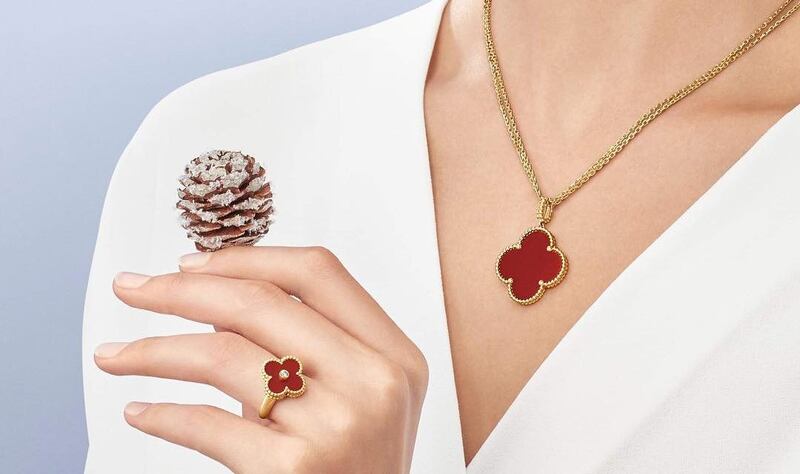
Van Cleef & Arpels’ Alhambra collection | Source: Van Cleef & Arpels
Chinese Consumers Look for Lucky Luxury
In China, luxury is about more than meets the eye. When Chinese consumers search for luxury products, aside from look and quality, they actively search for "yuyi": the connotation or meaning behind an object. Chinese consumers of all ages tend to believe in the metaphysical meaning of objects, and certain luxury products have long tapped into this. Van Cleef & Arpels' Alhambra, a four-leaf-clover-shaped necklace, for example, is said to be good luck for graduate interviews; Swarovski's Evil Eye necklace is believed to chase away evil; while the Amulette de Cartier and Bulgari's Roma series are thought to be lucky charms. Even if products aren't designed with good fortune in mind, Chinese consumers will invent their own, for example, seeing Harry Winston's "HW" logo as a stand-in for "husband and wife" making the brand a favourite for engagement rings over similarly-positioned brands. (Jing Daily)
Shanghai Retail Development Shines in Developer’s Interim Earnings
Hong Kong-based mall developer Hang Lung Properties has seen its operating profit fall 12 percent year-on-year for the first half of 2019, to HK$3.432 billion ($438.58 million). The sale of non-core assets achieved a net profit of HK$3.709 billion ($473.97 million), a year-on-year increase of 22 percent. Mainland property leasing business revenue increased by 1 percent to HK$2.19 billion ($279.86 million) in the first half of the year. Shanghai's Plaza 66 development, long one of mainland China's top performing malls, saw revenue and retail sales increase 11 percent and 15 percent respectively, beating the overall 8.4 percent growth in mainland retail in the first half of the year. (Local Retail Watch)
Is Chengdu Getting an SKP Mall?
Chengdu Transportation Investment Group Co., Ltd. has revealed plans to partner with luxury mall developer Beijing Hualian SKP to look into developing a new property in Chengdu as soon as possible. There are currently two SKP properties operating in Beijing (one of China's top-performing luxury malls, with 13.5 billion yuan of sales in 2018) and Xi'an, which opened in 2018, and development is underway on another SKP mall in Kunming. Given it took 11 years for Beijing Hualian SKP to expand from one mall to two, but in the past two years has committed to, or seems to be planning to, opening another two properties, it's fair to say they feel it's time to more aggressively expand SKP's winning luxury formula. (Lianshang)
政治,经济与社会
POLITICS, ECONOMY, SOCIETY
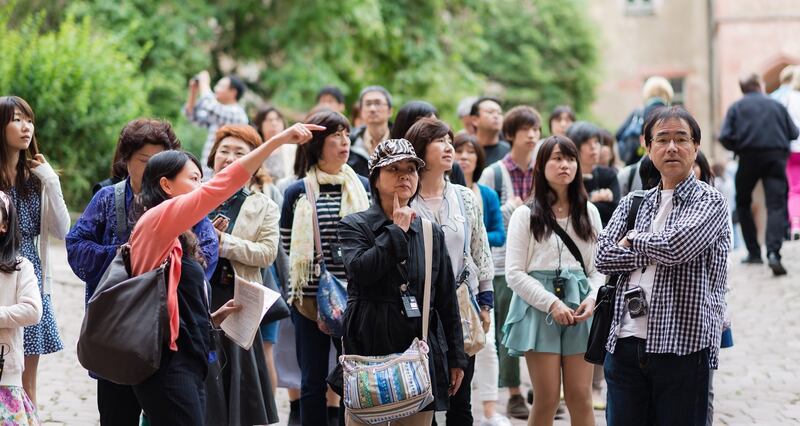
Chinese tourists | Source: Shutterstock
Beijing's Ban on Solo Travel to Taiwan Could Cost it $900 Million
On July 31, the mainland's ministry of tourism and culture announced that due to rising tensions between Beijing and Taiwan — whose governing Democratic Progressive Party takes a pro-independence stance and President Tsai Ingwen has openly supported Hong Kong's protestors — it would stop issuing individual travel permits to Taiwan effective from August 1. Though the individual travel ban doesn't preclude groups from visiting the island, experts say the ban could cause visitor numbers to drop by 700,000 over next six months and cost Taiwan $900 million by January. Tensions could still escalate: just last week, Beijing warned that if Taiwan made a bid for independence, it would be ready for war. (SCMP)
Chinese Netizens Offended by Marvel’s First Asian-led Superhero
Canadian-Chinese actor Simu Liu and Crazy Rich Asians' Awkwafina have been announced as stars of "Shang Chi and the Legend of Ten Rings", alongside veteran Tony Leung Chiu Wai. Marvel had said previously they were only entertaining ethnically Chinese actors for the lead in the much-anticipated superhero film, which will be the first to feature a prominently Asian cast. Not everyone was happy with the news, however — some netizens called for a boycott because Shang Chi is the son of Fu Manchu, a fictional character who has become a symbol of anti-Chinese discrimination. (Radii)
China’s SpaceX Successfully Launches Commercial Rocket
For the first time, a Chinese company has sent a commercial rocket into the Earth's orbit, setting up another field in which it could potentially butt heads with the US, as the two compete for private spaceflight supremacy. The US is still well ahead, to be sure, with China's nascent industry only five years old, but it took the company behind this successful launch, iSpace, only one year to develop its rocket. The company itself is not keen on the SpaceX comparisons, with a spokesperson saying: "We're still young, and we have a long way to go." (SixthTone)
China Decoded wants to hear from you. Send tips, suggestions, complaints and compliments to our Shanghai-based Asia Correspondent casey.hall@businessoffashion.com.
With consumers tightening their belts in China, the battle between global fast fashion brands and local high street giants has intensified.
Investors are bracing for a steep slowdown in luxury sales when luxury companies report their first quarter results, reflecting lacklustre Chinese demand.
The French beauty giant’s two latest deals are part of a wider M&A push by global players to capture a larger slice of the China market, targeting buzzy high-end brands that offer products with distinctive Chinese elements.
Post-Covid spend by US tourists in Europe has surged past 2019 levels. Chinese travellers, by contrast, have largely favoured domestic and regional destinations like Hong Kong, Singapore and Japan.